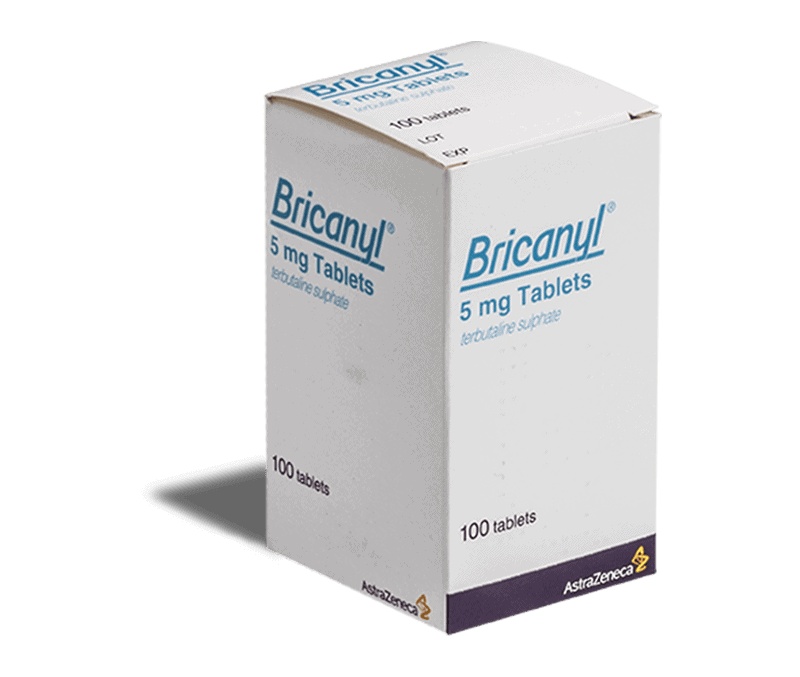Indications, Efficacy and Effects, Dosage, Side Effects, and Precautions of Terbutaline

Indications, Efficacy and Effects, Dosage, Side Effects, and Precautions of Terbutaline
Terbutaline is a drug widely used in the treatment of respiratory diseases such as asthma and chronic obstructive pulmonary disease. This article will provide a detailed introduction to the indications, efficacy and effects, dosage, side effects, and precautions of Terbutaline. Common side effects of Terbutaline include dry mouth, nasal congestion, mild chest tightness, drowsiness, and finger tremors. Some individuals may experience symptoms such as palpitations and headaches. Its curative effects are as follows: 1. By activating β2-adrenergic receptors, Terbutaline can relax the bronchial smooth muscles, relieve respiratory spasms, and thus increase the patency of the airway; 2. Reduce the secretion of mucus, which helps to relieve respiratory obstruction; This drug has shown excellent performance in clinical trials, with significant curative effects and high safety.
I. Indications of Terbutaline
Terbutaline is mainly used for the treatment of respiratory diseases such as bronchial asthma, asthmatic bronchitis, chronic obstructive pulmonary disease (COPD), and pulmonary emphysema. It can rapidly dilate the airway and improve dyspnea, and has a significant curative effect on patients with acute asthma attacks. In addition, Terbutaline can also be used to prevent exercise-induced bronchospasm.
II. Efficacy and Effects
Terbutaline selectively activates β2-adrenergic receptors, leading to the relaxation of airway smooth muscles, thus widening the airway and promoting the flow of gas. Its characteristic of rapid onset enables patients to quickly relieve symptoms during acute wheezing. At the same time, Terbutaline also has the effect of inhibiting the inflammatory response, which helps to improve various discomforts caused by chronic airway inflammation.
III. Dosage
Terbutaline is usually administered in an inhaled dosage form. The recommended dose for adults and children over 12 years old is 1 puff (0.25 mg to 0.5 mg) each time, and it can be repeated every 4 to 6 hours if necessary. For children (5 years old and above), the dose should be adjusted according to the doctor's advice. It is important to follow the doctor's instructions and avoid randomly increasing or decreasing the dose.
IV. Side Effects
Although Terbutaline is relatively safe in clinical applications, some patients may experience side effects. Common side effects include palpitations, tremors, headaches, and dry mouth. A few patients may have allergic reactions, such as rashes and itching. Therefore, it is necessary to closely observe your own reactions during the use. If you experience severe discomfort, you should seek medical attention in a timely manner.
V. Precautions
When using Terbutaline, patients should note that they should not stop the drug or adjust the dose on their own and should follow the doctor's care plan. Patients who are allergic to Terbutaline or any excipients should avoid using it. In addition, patients with heart disease, hypertension, and diabetes should be particularly cautious when using Terbutaline, and it is recommended to regularly monitor relevant physiological indicators.
In summary, as an effective bronchodilator, Terbutaline provides an important treatment option for patients with asthma and other respiratory diseases. By using this drug correctly, the quality of life of patients can be significantly improved, but it is necessary to carefully follow medical guidance to ensure safe use. If necessary, you can consult the Dingxiang customer service.
The following are several case Q&A to help you better understand the use of Terbutaline:
Question: I have asthma. After using Terbutaline, I experienced the side effect of finger tremors. Can I continue to use it?
Answer: Common side effects of Terbutaline include finger tremors. If you have this situation, it is recommended that you communicate with your doctor in a timely manner. The doctor will evaluate whether it is necessary to adjust the dose or change the treatment plan according to your specific situation. Generally, some mild side effects may gradually decrease during continuous use, but if it is severe, further treatment is required.
Question: My child is 5 years old and has asthmatic bronchitis. Can Terbutaline be used, and how is the dose determined?
Answer: Terbutaline can be used for children aged 5 and above, but the dose needs to be adjusted according to the doctor's advice. For children using Terbutaline, the doctor will comprehensively consider factors such as the child's weight and the severity of the condition to determine the appropriate dose. Therefore, it is recommended that you take your child to the hospital, and a professional doctor will decide whether to use it and the specific dose.
Question: I have both hypertension and asthma. What should I pay attention to when using Terbutaline?
Answer: If you have both hypertension and asthma, you should be particularly cautious when using Terbutaline. Terbutaline may have a certain impact on blood pressure, so it is recommended that you regularly monitor blood pressure and other relevant physiological indicators and promptly report to your doctor. At the same time, be sure to follow the doctor's care plan and do not adjust the dose or stop the drug on your own to ensure the safe and effective treatment of asthma.

